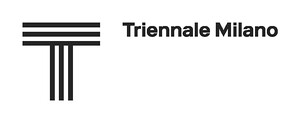October 17, 2020–April 18, 2021
Viale Alemagna, 6
20121 Milan
Italy
Triennale Milano with its Museo del Design Italiano presents Enzo Mari curated by Hans Ulrich Obrist and Francesca Giacomelli, an exhibition devoted to the work and ideas of Enzo Mari, one of the most important designers, artists, critics and theorists. The show includes projects, models, drawings, and materials, many of which have never been shown before, from the Enzo Mari Archive, recently donated to CASVA, the centre for advanced studies in the visual arts of the City of Milan.
The exhibition has emerged from the incessant dialogue and exchange of ideas over the years between Mari and the curator Hans Ulrich Obrist, looking at more than 60 years of art and design, architecture and philosophy, teaching and graphics.
The exhibition consists of a historical section, curated by Francesca Giacomelli, and a series of contributions from international artists and designers—Adelita Husni-Bey, Tacita Dean, Dominique Gonzalez-Foerster, Mimmo Jodice, Dozie Kanu, Adrian Paci, Barbara Stauffacher Solomon, Rirkrit Tiravanija, Danh Vō, and Nanda Vigo—who have been invited to pay tribute to Mari with site-specific installations and new, specially commissioned works. One contribution in particular is that of Nanda Vigo, whose work, made specially for the exhibition shortly before her death and never shown previously, uses light to reinterpret 16 animali and 16 pesci, two of Mari’s most famous works.
The historical section starts with a new display of the artist’s last exhibition project, Enzo Mari. L’arte del design, held at GAM, Galleria Civica d’Arte Moderna e Contemporanea, in Turin in 2008–09, a global project that Mari himself prepared and curated, and for which he edited the catalogue. The exhibition features a selection of about 250 of Mari’s projects—from the Pitture of the 1950s to the Strutture of the 1950s and ’60s (programmed art), to the series of Putrella containers (1958) and his art multiples entitled La Serie della Natura (1961–76), from the design for the Cover of the Collana Universale Scientifica Boringhieri (1965) to the Box chair (1971), Autoprogettazione (1973), through to the 44 valutazioni (1976–2008), and the Tonietta chair (1980). There are also designs for Tre piazze del Duomo (1982), the Allegoria della dignità (1988), and Lezioni di disegno (2007–08), all the way to the design Per un Nuovo Museo del design for Abitare magazine (2009–10)—which is considered as one of the most representative works of the nearly 2,000 he has created during his career. The works are shown in chronological order, without distinguishing between disciplines, media, or types of research.
At the same time, 19 Research Platforms, specially created for the Triennale exhibition, give insights into the individual projects that have given rise to the key themes of Mari’s artistic vision and practice: his initial investigations of perceptual ambiguities, his research into experimental production, his studies of mass-production, the theme of standards, and so on. The focus displays contain a selection of the Allegorie—including the first 856 (1967), the critical design exercise Proposta per un’autoprogettazione (1974), Perché una mostra di falci? (1986), and Sessanta fermacarte (2010), the last one he made—as well as his last projects, which he worked on in the years following the anthological exhibition in Turin. These include the spectacular design for the exhibition Vodun, African Voodoo (2011) designed for the Fondation Cartier pour l’art contemporain in Paris in 2010, of which one setting is shown here with powerful formal references to the structures of the models that form the Proposta per un’autoprogettazione of 1974.
The exhibition also includes a series of video interviews by Hans Ulrich Obrist that illustrate Mari’s constant ethical tensions, the depth of his theoretical understanding, and his extraordinary design skills with which he has given shape to the essential.
The Enzo Mari retrospective is part of a series of major exhibitions put on by Triennale and its Museo del Design Italiano to examine the great masters of design (Sottsass, Bellini, and Castiglioni). The journey will continue in April 2021 with an exhibition devoted to Vico Magistretti.
On October 17, Triennale Milano will open to the public the Enzo Mari retrospective and Claudia Andujar: The Yanomami Struggle, an exhibition dedicated to the work and activism of Brazilian artist Claudia Andujar, that marks the start of the cultural partnership between Triennale Milano and Fondation Cartier pour l’art contemporain.
On Thursday, October 15 at 6:30pm (CET) the Digital Opening of both exhibitions will take place on Triennale Milano and Fondation Cartier Facebook pages and YouTube channels.



